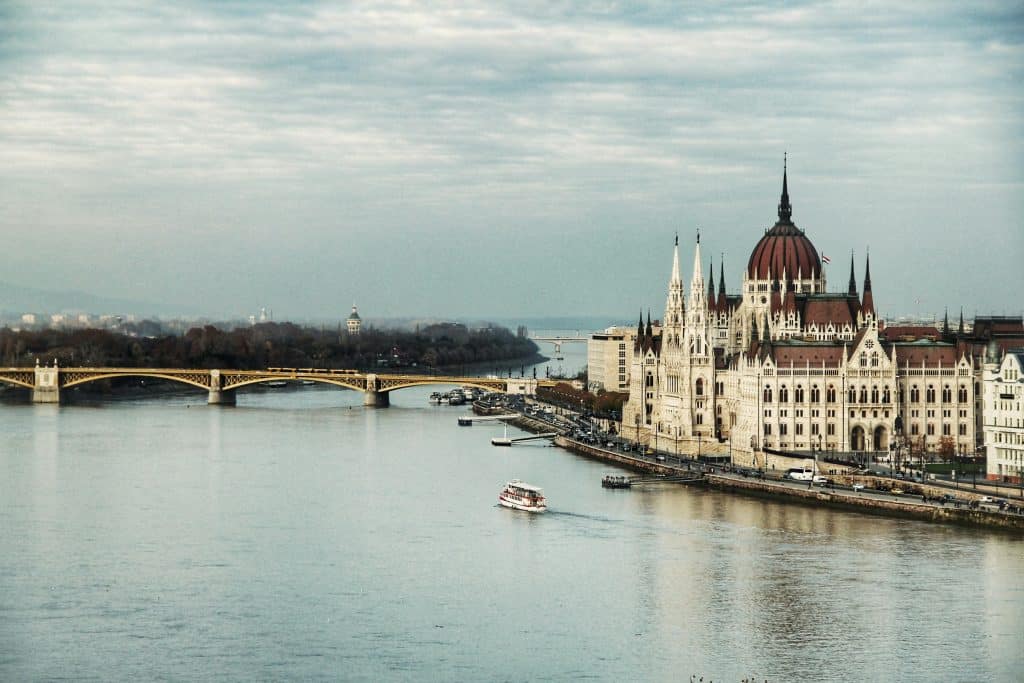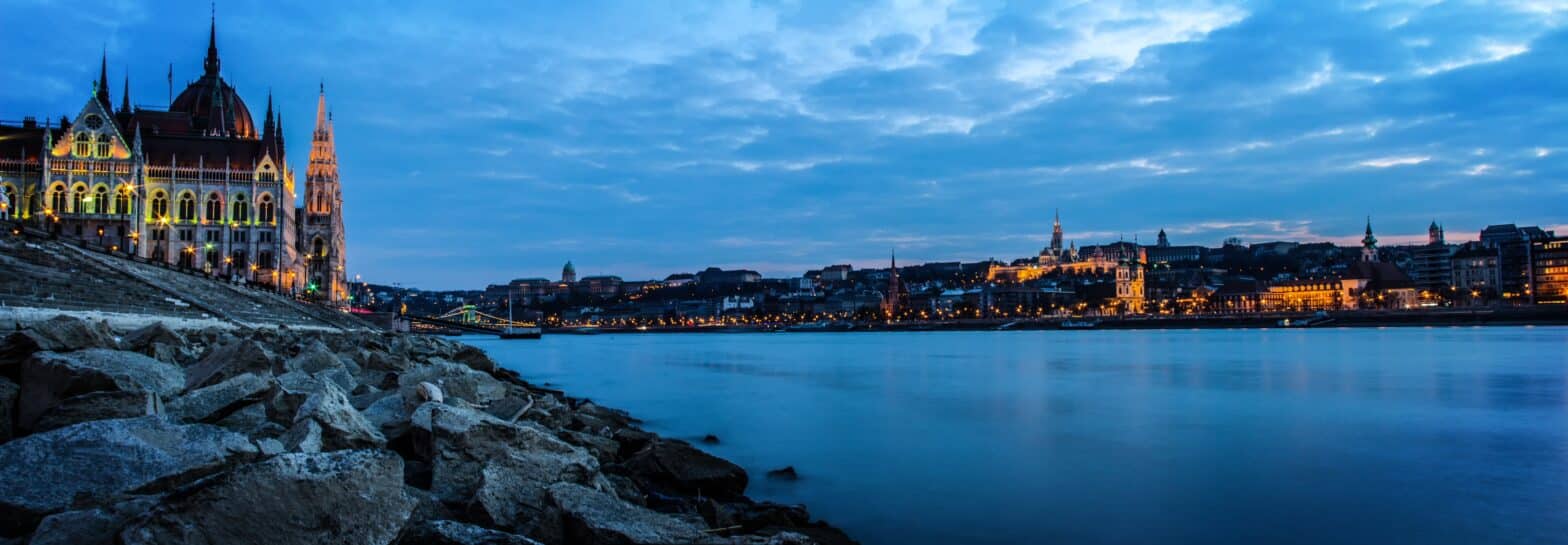Hungary is an increasingly popular destination for expats, digital nomads, and retirees alike. Located in the heart of Central Europe, it combines a rich cultural heritage with affordable living, a growing economy, and easy access to the rest of the continent. Whether you are relocating for work, starting a business, or simply seeking a slower pace of life, Hungary has something to offer. The country’s central location makes it ideal for exploring Europe, while its mix of modern amenities and traditional charm appeals to people from all walks of life. In this guide, we cover everything you need to know about relocating to Hungary, from visa rules and cost of living to housing, healthcare, and everyday life.
Moving to Hungary: visa and entry requirements
If you are from an EU or EFTA country, you can enter Hungary without a visa and enjoy the right to live and work freely. However, if you plan to stay for more than 90 days, you must register your residence. Expats from outside the EU/EEA, such as U.S. or Canadian citizens, need to apply for a residence permit. The type of permit will depend on your purpose, whether it is employment, entrepreneurship, or studies.
All expats must register with the National Directorate-General for Aliens Policing within 90 days of arrival and provide proof of accommodation, income, and valid health insurance. Some permits also require a work contract or a detailed business plan in advance. Starting the process early is recommended, as processing times can vary.

Where to live: popular cities and regions
Hungary offers a variety of locations that cater to different lifestyles, from lively urban centers to peaceful countryside towns. Here are some of the most popular choices among expats:
- Budapest – The capital is the first choice for many expats thanks to its combination of career opportunities, modern amenities, and rich cultural life. It offers an impressive mix of historical architecture, museums, and vibrant nightlife. The job market here is the strongest in the country, particularly for international companies and startups. Public transport is extensive, and you can easily get around without a car. While the cost of living is higher than in smaller towns, Budapest provides the most diverse lifestyle options.
- Debrecen – As Hungary’s second-largest city, Debrecen is a hub for education and culture. It is home to one of the country’s leading universities, attracting students and professionals from around the world. The city has a friendly, community-oriented atmosphere, making it appealing to families and those looking for a quieter alternative to the capital. Cultural events, museums, and well-kept public parks give the city a pleasant balance between tradition and modernity.
- Szeged – Known as the “City of Sunshine” due to its warm climate, Szeged offers a slower pace of life while still providing essential amenities. It is popular with people who enjoy outdoor activities, thanks to its parks, riverside promenades, and sunny weather. The city has a lively student population, affordable housing, and a welcoming atmosphere. Its relaxed lifestyle appeals to those who want to escape the bustle of larger cities without feeling isolated.
- Eger and Pécs – These smaller towns are ideal for families or retirees seeking a peaceful environment. Eger is famous for its wine culture, historic castle, and charming old town. Pécs boasts Mediterranean-style architecture, art galleries, and cultural festivals. Both locations offer a lower cost of living, slower pace, and strong sense of community, making them excellent choices for long-term settlement away from urban congestion.
Cost of living in Hungary
Hungary is known for its affordable lifestyle compared to many Western European countries, making it an attractive option for expats looking to balance quality of life with manageable expenses:
- Housing costs – Rent is the biggest expense for most expats, but it remains affordable compared to Western Europe. A one-bedroom apartment in Budapest typically costs between €400 and €700 per month, while in smaller cities or rural areas you can find similar apartments for much less. Housing quality varies, so it is worth viewing multiple properties before signing a lease.
- Utilities and internet – Monthly utility bills, including electricity, heating, water, and internet, range from €120 to €180 depending on the season and apartment size. Heating costs in winter can be significant, especially in older buildings without modern insulation. Many expats opt for high-speed internet, which is reliable and widely available across the country.
- Transport expenses – Public transport is efficient and affordable. A monthly pass in cities like Budapest costs €25 to €30, giving access to metro, buses, and trams. If you live in a smaller town, cycling or walking can significantly reduce transport costs, while intercity train fares remain reasonable for weekend trips.
- Food and dining – Grocery shopping for basic items typically costs between €150 and €250 per month per person, depending on dietary habits. Eating out is affordable compared to many European capitals, with a meal for two in a mid-range restaurant priced at €20 to €35. Local markets are a good source of fresh produce at low prices, and Hungarian street food such as lángos and kürtőskalács offers cheap, tasty treats
- Overall affordability – While salaries in Hungary are lower than the EU average, purchasing power remains high because essential living costs are manageable. Many expats find they can maintain a good quality of life on a moderate income, with enough left over for leisure, travel, and cultural activities.
Working in Hungary
EU and EFTA nationals can work in Hungary without a permit, but they must register locally. Non-EU citizens require a work permit, usually tied to a specific job offer and employer sponsorship. The Hungarian job market has strong demand in IT, education, tourism, and shared service centres (SSCs), with Budapest hosting many multinational companies. English-speaking roles are available, particularly in international firms, though Hungarian fluency can be a significant advantage. For entrepreneurs, Hungary is appealing due to its 9% corporate tax rate, one of the lowest in Europe, along with simplified company registration and affordable business costs. Having a solid business plan will also help when applying for a residence permit based on self-employment.
Healthcare system
Hungary’s public healthcare system covers basic medical care and hospitalization for legal residents, but it can be underfunded and subject to long waiting times. Many expats prefer private clinics, which offer faster services, English-speaking staff, and modern facilities. Key points to keep in mind include the need for valid health insurance, especially for non-EU citizens, and the recommendation to have international coverage for access to private healthcare. This is particularly important for dental work, specialist appointments, and hospital stays. Foyer Global Health offers tailored health insurance plans designed for expats in Hungary and abroad.
Housing and rentals
Renting property in Hungary is straightforward, especially in cities. Most leases are for 12 months, with a deposit equal to one or two months’ rent. Apartments dominate the urban market, ranging from Soviet-era blocks to renovated historic buildings. In smaller towns and rural areas, detached houses with gardens are common. Prices vary significantly depending on location, with the capital being the most expensive. Always sign a formal rental agreement, clarify whether utilities are included, and inspect the property before committing. Local real estate agents, online property portals, and word-of-mouth recommendations are all useful when searching for a rental.
Transport and getting around
Hungary has a reliable and affordable transport network. Budapest and Debrecen feature metro, bus, and tram systems that are efficient and well-maintained. Intercity trains connect major destinations, with services running frequently and on time. A monthly public transport pass costs around €25 to €30, making commuting very affordable. Driving is straightforward for EU licence holders, and non-EU citizens can use an International Driving Permit (IDP) for a limited period. Roads are generally in good condition, though winter driving in rural areas requires extra care. Cycling is increasingly popular in urban areas, with dedicated bike lanes expanding each year.
Banking and finances
Hungary’s currency is the Hungarian Forint (HUF). Opening a local bank account is simple for EU citizens, requiring only a passport and proof of address. Non-EU nationals may need to provide a residence permit or visa. Banking services are modern, with widespread online and mobile banking, but fees vary by institution, so comparing options is advisable. International transfers can be costly, so many expats use online money transfer services for better rates. Establishing a local account will make it easier to manage rent, utilities, and day-to-day expenses.
Weather and climate
Hungary enjoys a continental climate with four distinct seasons. Summers (June to August) are hot and sunny, often reaching over 30°C, while winters (December to February) are cold, with temperatures often dropping below freezing and occasional snow. Spring and autumn are mild and pleasant, making them ideal seasons for travel and outdoor activities. The climate tends to be drier than in many parts of Europe, with more sunshine in the south, particularly in places like Szeged, compared to northern regions.
Education: schools and language
Public schools in Hungary are free for residents and teach in Hungarian, which can be a challenge for expat children without language support. International schools, mainly located in Budapest and Debrecen, offer British, American, or International Baccalaureate programmes. Popular choices include the British International School Budapest, the American International School of Budapest, and the Deutsche Schule Budapest. While Hungarian is the official language and can be challenging to learn, English is widely spoken in business, tourism, and among younger generations. Knowing some basic Hungarian is highly appreciated and will help with integration. Many language schools and expat meetups offer opportunities to practise and socialise.
Top experiences in Hungary
Hungary offers a wealth of experiences for newcomers. In Budapest, relaxing in the Széchenyi or Gellért thermal baths is a must, as is a sunset cruise on the Danube. History lovers can explore Buda Castle, the Chain Bridge, and medieval streets in Eger. Food enthusiasts will enjoy traditional dishes such as goulash, stuffed cabbage, and chimney cakes, along with the country’s excellent wines. Nature lovers can visit Lake Balaton, hike in Hortobágy National Park, or explore the Aggtelek Caves, a UNESCO World Heritage Site. For nightlife, Budapest’s ruin bars in the Jewish Quarter are unique social hubs.

Final thoughts
Living in Hungary as an expat offers a unique balance of affordability, cultural depth, and modern comfort. Whether you prefer the energy of Budapest, the academic atmosphere of Debrecen, or the tranquillity of rural villages, you will find a lifestyle that fits your needs. The country’s central location, efficient transport, and friendly atmosphere make it an ideal base for exploring Europe. Before your move, make sure you have the right healthcare coverage. Foyer Global Health’s international health insurance provides peace of mind and access to quality care in Hungary and beyond, so you can focus on enjoying your new life.
